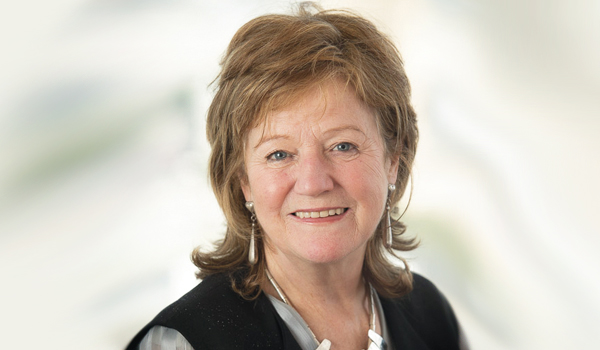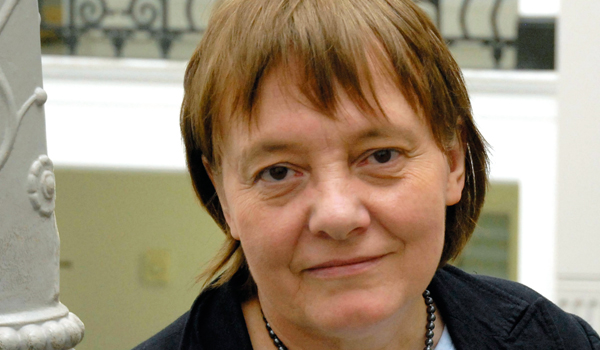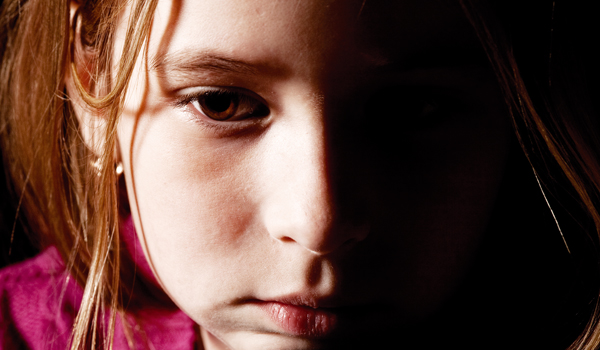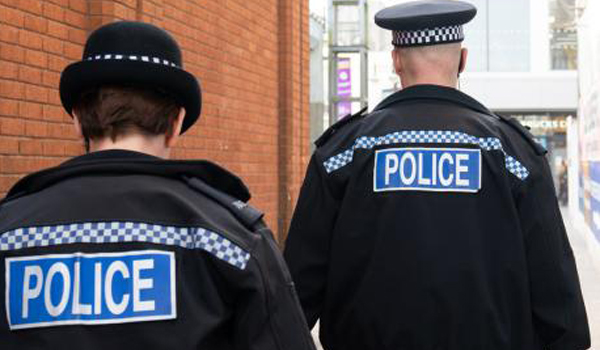Lessons in safeguarding
Investigations by police and authorities into allegations of child sexual abuse by staff in schools have been hampered by a culture that ‘discouraged reporting’, with the reputation of the school prioritised over the protection of children, according to a new report.
A report published this month by the Independent Inquiry into Child Sexual Abuse (IICSA) highlights “shocking and horrific” instances of child sexual abuse in schools, with some teachers exploiting their position of trust to groom and abuse children across all types of educational settings.
The report says schools are not as safe for children as they should be and children’s interests do not always come first when allegations of sexual abuse are made.
Multiple institutions are implicated in failures of child protection in schools, including local authorities, school inspectorates and the police.
In particular, the Inquiry uncovered a “culture” that “discouraged” reporting incidents to authorities, with the reputation of the school prioritised over the protection of children.
Evidence showed this lack of information sharing with police can compromise the evidence, thus “imperilling any investigation, let alone prosecution of the offender”.
In one case highlighted in the report, former teacher Nigel Leat received an indefinite jail sentence for public protection in 2011 after he pleaded guilty to 36 charges relating to the abuse of pupils in his care, all against girls aged under 13.
The offences included attempted rape and sexual assaults and he also filmed the abuse, which took place at Hillside First School – a maintained school for children aged four to eight in Weston-Super-Mare – for 15 years between 1995 and 2010.
Police discovered 454 original videos in which Leat had filmed himself abusing his pupils. A subsequent serious case review revealed that his inappropriate or unprofessional conduct had been noted on more than 30 occasions, but few were reported to the designated safeguarding lead (DSL), even fewer were officially recorded and no effective action had been taken in respect of them.
If allegations do find their way to the police, any delay in reporting may have compromised the evidence, imperilling any investigation, let alone prosecution of the offender
In another case, Christopher Ling, a former violin teacher at Chetham’s School of Music in Manchester, was charged with abusing eight young girls, often in the guise of ‘rewards and punishments’ at his home during tutorials, during music courses in school holidays and at the school itself.
When Ling’s abuse of pupils came to light in December 1990, shortly after he moved to the US, one of the victims, known as RS-A2, was interviewed by Greater Manchester Police in the presence of the housemistress. Although the female police officer who interviewed her was “kind”, RS-A2 had the impression that the housemistress was worried about the impact on the school and that she was angry with RS-A2. Extradition was not pursued and no further action was taken at the time by the school. Ling shot himself at his home in Los Angeles on September 1, 2015.
In a damning summary, the report says for children in some schools, “sexual abuse and harassment between peers remain endemic”.
Despite numerous changes and improvements to safeguarding over the past two decades, some children “continue to experience sexual abuse and sexual harassment in schools”, it said, adding: “Schools need to accept that ‘it could happen here’, and in the case of harmful sexual behaviour between pupils that ‘it probably is happening here’.”
Alan Collins, partner in the sex abuse team at Hugh James Solicitors, says had there been mandatory reporting then many of the cases identified in the IICSA report could have been avoided
“The message has to be clear and direct: if you are aware or concerned then you must report to the police or social services,” he added.
Ideal environment for grooming
Chaired by Professor Alexis Jay OBE, the IICSA Residential Schools investigation report is based on evidence received by the Inquiry about incidents of child sexual abuse, harmful sexual behaviour between children and other safeguarding concerns which arose at 13 schools, as well as evidence about eight schools which are no longer operating. This included residential specialist music schools and residential special schools, where pupils faced heightened risks of sexual abuse and there had been numerous allegations and convictions of child sexual abuse. The Inquiry found that children in residential schools were particularly vulnerable to sexual abuse because of their isolation from families and carers, and the involvement of staff in their intimate personal care, creating “the ideal environment for grooming”.
Many of the schools examined by the Inquiry responded inadequately to allegations against their staff and in some cases there was “a culture which discouraged reporting”.
Too often, the Inquiry saw examples of headteachers who found it inconceivable that staff might abuse their positions of authority to sexually abuse children, were unaware of current statutory guidance or did not understand their role in responding to allegations against staff.
“It was clear that some staff were more focused on protecting the reputation of the school than protecting the interests of the children,” said the report.
It highlights that for many victims and survivors, “the impacts of abuse have been profound and lifelong”, adding: “Many of those in positions of authority and responsibility have not been held to account for their failures of leadership and governance. Many perpetrators have not been brought to justice.”
Lamentable failings
Mr Collins said those who work at the coalface of investigating child sexual abuse and representing the victims will not have been surprised by the report.
“The report confirmed that in spite of training in safeguarding in schools and the greater awareness of child sexual abuse there are still lamentable failings,” he said.
“Headteachers, and those concerned with governance, were identified as not fully understanding their responsibilities when it came to child protection and were too keen to put their schools’ reputations first. Moreover, culture could impede the reporting of allegations, let alone the raising of concerns.
“I have come across some in the educational world who have said to me that child abuse could never happen in their school, which of course is complacent, but shows first-hand how in spite of many years of training in safeguarding there is still significant myopia.
“The consequences are of course potentially profound, not just for the children who are abused but for the schools themselves. Perversely by allowing a culture to develop that unwittingly allows the abuse, and then to effectively supress reporting of allegations is likely to be reputationally damaging not just for the school but the staff too.”

Mr Collins added: “It does end there because if the allegations do find their way to the police, any delay in reporting may have compromised the evidence thus imperilling any investigation, let alone prosecution of the offender. I have seen cases where schools instead of reporting allegations to the police have instead ‘spoken’ to the alleged abuser, and in doing so have (and probably unintentionally) watered them down so that have become interpreted as something short of child abuse. This at best muddies the waters, and at worse devalues the potential evidence of any witnesses.”
Mr Collins said there has to be a far greater openness in all schools about the existence of child abuse in society, and the obligations and responsibilities that comes with safeguarding.
“IICSA has identified the need for training, but I am the opinion that mandatory reporting is required of all allegations of child abuse,” he said.
“Mandatory reporting is a simple concept. If you work in a school and you become aware of an allegation of child abuse it is your job to report it, and not someone else’s. There will always be some who choose to don the blinkers, but that would be at personal risk to themselves because with mandatory report comes criminal penalties for failing to report.
“There have been too many cases of child abuse in schools where had the concern that a child was being abused had been reported the offender could have been stopped in his/her tracks. What we see too often multiple concerns on the part of many individuals who assume that the ‘problem’ will be dealt with elsewhere by someone else. That culture needs to end and that can be achieved through mandatory reporting.”
Professor Jay said schools should be places of learning where children are nurtured by trusted teachers and are able to flourish in a safe environment. “This is in contrast to the many shocking instances of child sexual abuse detailed in this report. They represent the opposite of everything that a school should be,” she added.
“Poor leadership frequently left staff unaware of how to respond to concerns about sexual abuse or too afraid of potential consequences to act. In some cases, it was clear that protecting the reputation of the school was prioritised over the protection of children from sexual abuse – this is a recurring theme in very many of our reports.
“Day and residential schools play a key role in keeping children safe from harm, but despite 20 years of enhanced focus on safeguarding they are not as safe for children as they should be. This must change. The seven recommendations in this report must be implemented to vitally improve the current systems of child protection in schools.”
The report makes seven recommendations, including:
- Setting nationally accredited standards and levels of safeguarding training in schools;
- Making the highest level of safeguarding training mandatory for headteachers, designated safeguarding leads in England or designated safeguarding persons in Wales, designated safeguarding governors, or the proprietor or head of the proprietorial body; and
- Reintroducing a duty on boarding schools and residential special schools to inform the relevant inspectorate of allegations of child sexual abuse and other serious incidents, with professional or regulatory consequences for breach of this duty.
Read the full report at https://www.iicsa.org.uk/reports-recommendations/publications/investigation/residential-schools






